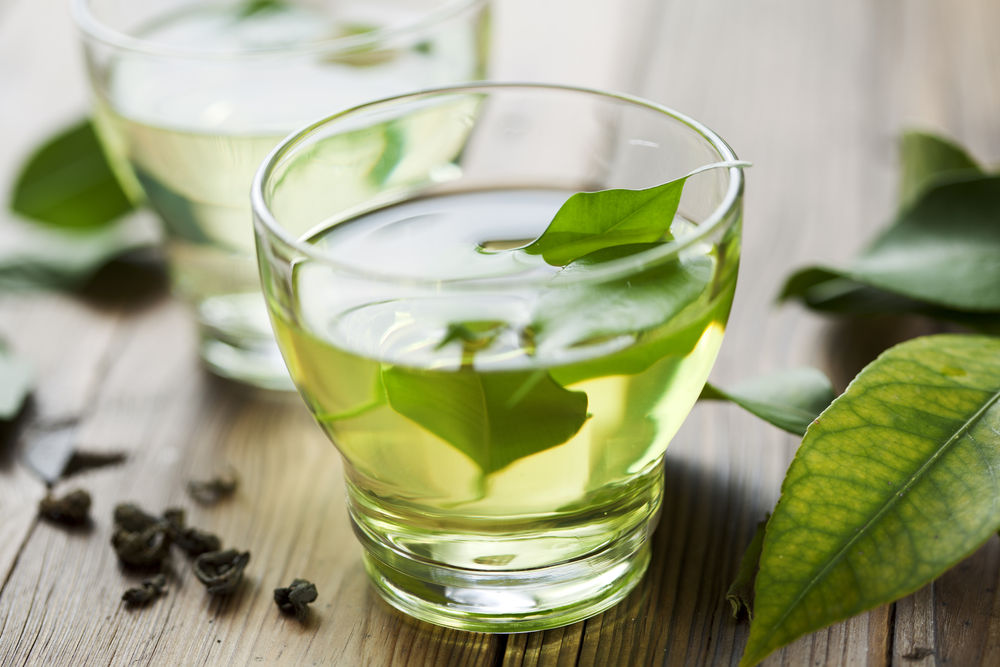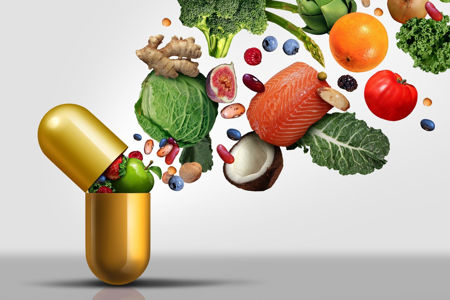Green tea is known for its impressive health benefits. If you have not started consuming green tea, it is time for you to start now as it contains various promising benefits to health.
Other than to soothe, refresh, and restore, green tea is also famous due to the following benefits.
1. Reduce Weight and Lower the Risk of Obesity
Green tea can boost the metabolism rate and thus, it helps you with weight loss.
According to a study done by a Thailand researcher, green tea helps in reducing body fat, especially in the abdomen area (1).
The key is to be consistent in consuming this beverage to achieve a desirable result.
2. Anti-Aging Benefit
The polyphenol properties in green tea work wonder to the skin as they help to protect your skin from the sun’s ultraviolet radiation. Being exposed to ultraviolet radiation for a long time can cause your skin to have dark sports, higher risk of skin cancer, and develop wrinkles.
Do you know that green tea also has an anti-inflammatory effect? It helps your skin to stay clear and glowing.
A study has found that applying green tea on the surface of your skin can help to soothe the acne and rosacea (2).
3. Good for Heart Health
Green tea contains flavonoids that can help to prevent oxidation of bad cholesterol (LDL) and reduce blood clotting. Green tea can also lower our blood pressure and the risk factors of heart disease (3).
Given the facts on the various benefits, it is not surprising that green tea drinkers have 31 percent lower risk of developing cardiovascular disease (4).
4. Improve Dental Health and Kill Bacteria
Green tea contains catechin – a substance that can kill bacteria and inhibit viruses, lowering the risk of infection (5).
Furthermore, studies have shown that green tea consumption can improve bad breath and dental health as well as a lower risk of caries (6).
5. Antioxidants in Green Tea May Lower the Risk of Cancer
Cancer is known as the uncontrolled growth of cells in a certain part of the body and has been recognized as the world’s leading cause of death.
Green tea is rich in antioxidant properties that could reduce the risk of cancers such as breast and prostate cancers.
Breast cancer – a study has shown that women who drank green tea consistently had 20 - 30% lower risk of developing breast cancer (7).
Prostate cancer – another study has shown that men who consume green tea regularly had 48% lower risk of developing prostate cancer (8).
Many studies have reported that green tea can reduce the risk of cancer. However, it is advisable to avoid adding milk into your green tea as it can reduce its antioxidant effects.
References:
1. Auvichayapat, P., Prapochanung, M., Tunkamnerdthai, O., Sripanidkulchai, B. orn, Auvichayapat, N., Thinkhamrop, B., … Hongprapas, P. (2008). Effectiveness of green tea on weight reduction in obese Thais: A randomized, controlled trial. Physiology and Behavior. https://doi.org/10.1016/j.physbeh.2007.10.009
2. What are the health benefits of green tea? (2013). https://doi.org/10.1787/eag_highlights-2013-16-en
3. Hartley, L., Flowers, N., Holmes, J., Clarke, A., Stranges, S., Hooper, L., & Rees, K. (2013). Green and black tea for the primary prevention of cardiovascular disease. Cochrane Database of Systematic Reviews. https://doi.org/10.1002/14651858.CD009934.pub2
4. Kuriyama, S. (2008). The Relation between Green Tea Consumption and Cardiovascular Disease as Evidenced by Epidemiological Studies. The Journal of Nutrition. https://doi.org/10.1093/jn/138.8.1548s
5. Steinmann, J., Buer, J., Pietschmann, T., & Steinmann, E. (2013). Anti-infective properties of epigallocatechin-3-gallate (EGCG), a component of green tea. British Journal of Pharmacology. https://doi.org/10.1111/bph.12009
6. Chatterjee, A., Saluja, M., Agarwal, G., & Alam, M. (2012). Green tea: A boon for periodontal and general health. Journal of Indian Society of Periodontology. https://doi.org/10.4103/0972-124X.99256
7. Ogunleye, A. A., Xue, F., & Michels, K. B. (2010). Green tea consumption and breast cancer risk or recurrence: A meta-analysis. Breast Cancer Research and Treatment. https://doi.org/10.1007/s10549-009-0415-0
8. Kurahashi, N., Sasazuki, S., Iwasaki, M., & Inoue, M. (2008). Green tea consumption and prostate cancer risk in Japanese men: A prospective study. American Journal of Epidemiology. https://doi.org/10.1093/aje/kwm249
nutrition
What Are the Health Benefits of Manuka Honey?
Wednesday, 30 October 2019
Manuka honey is a type of honey that is produced by bees who pollinate the flower, Leptospermum scoparium.










![[BUNDLE OF 2] Singlion Vitamin C + Lutein + Zinc Effervescent](https://www.vitasg.sg/images/thumbs/0002225_bundle-of-2-singlion-vitamin-c-lutein-zinc-effervescent_415.jpeg)







